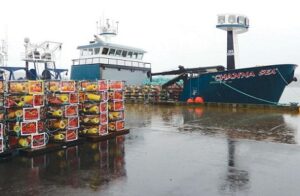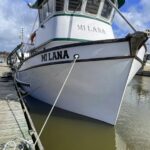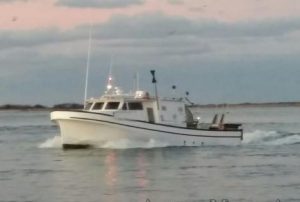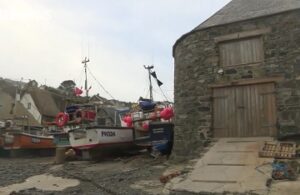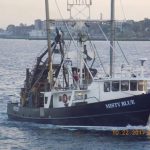Floundering with the Fishcrats
Right now just three miles from Long Island’s beaches boats are dragging fluke, or “summer flounder”, as is their official title. These boats are from several regional states, among them New York. Most are fishing under Southern state “flags”, as it were, as these states have the biggest quota shares and therefore the biggest daily limits. Each boat will have to steam to a port in the state of the landing permit it is working under to off load and sell the catch. This fishing here has been going on this way for many decades, but it hasn’t been until recent years that boats had to sail the flatfish hundreds of miles to sell them. Bringing them within New York’s boundaries constitutes a serious violation of New York State Department of Environmental Conservation Law, with potential felony convictions with huge fines, loss of license and vessel, and jail time.
The “plan” that was devised by the councils promulgated under the Magnuson-Stevens Act has left the state whose waters have historically been the home to the most fluke in the warmer months on the East Coast with such a small slice of the “fluke-pie” that even with a fifty-pound per day limit on each boat the “bean-counters” found it necessary to close the fishery for five weeks out of the season this year. So for Long Island captains that want to make a living from theses fish they must acquire nonresident landing permits for thousands of dollar and then they can take thousands of pounds of fluke legally.
But the markets of these southern states cannot handle all these fish locally. And being that the biggest seafood markets in the world are in the Northeast — New York in particular — and that so few fluke are available from local ports, the highest prices are offered there. And so the dealers from the South ship much of what they buy north. It cannot be a violation of state law for these out-of-state dealers to sell these fluke in the State of New York. This would be a violation of the Commerce Clause of the U.S. Constitution.
A company based in New York doing business in Virginia under a Virginia State dealer’s permit can take fish that were caught in federal waters three miles off Shinnecock, Long Island, by a New York boat fishing under a Virginia permit, put them on a truck registered in New York and driven by a New York licensed trucker and sell them to a New York dealer in the Fulton Market, this under the protection of the federal government.
Why the New York fisherman also working under a Virginia State permit is not afforded the same protections is beyond me. Somehow this makes sense to the fishcrats as established by what the MSA required as being in response to the “best available science” to protect fish stocks from “overfishing”.
I don’t see it doing that at all. But it is obvious to me that the duty that administrators have to protect the people in the businesses that they govern from “overregulation” has been seriously breached.
Chuck Tekula, Commercial Fisherman






































